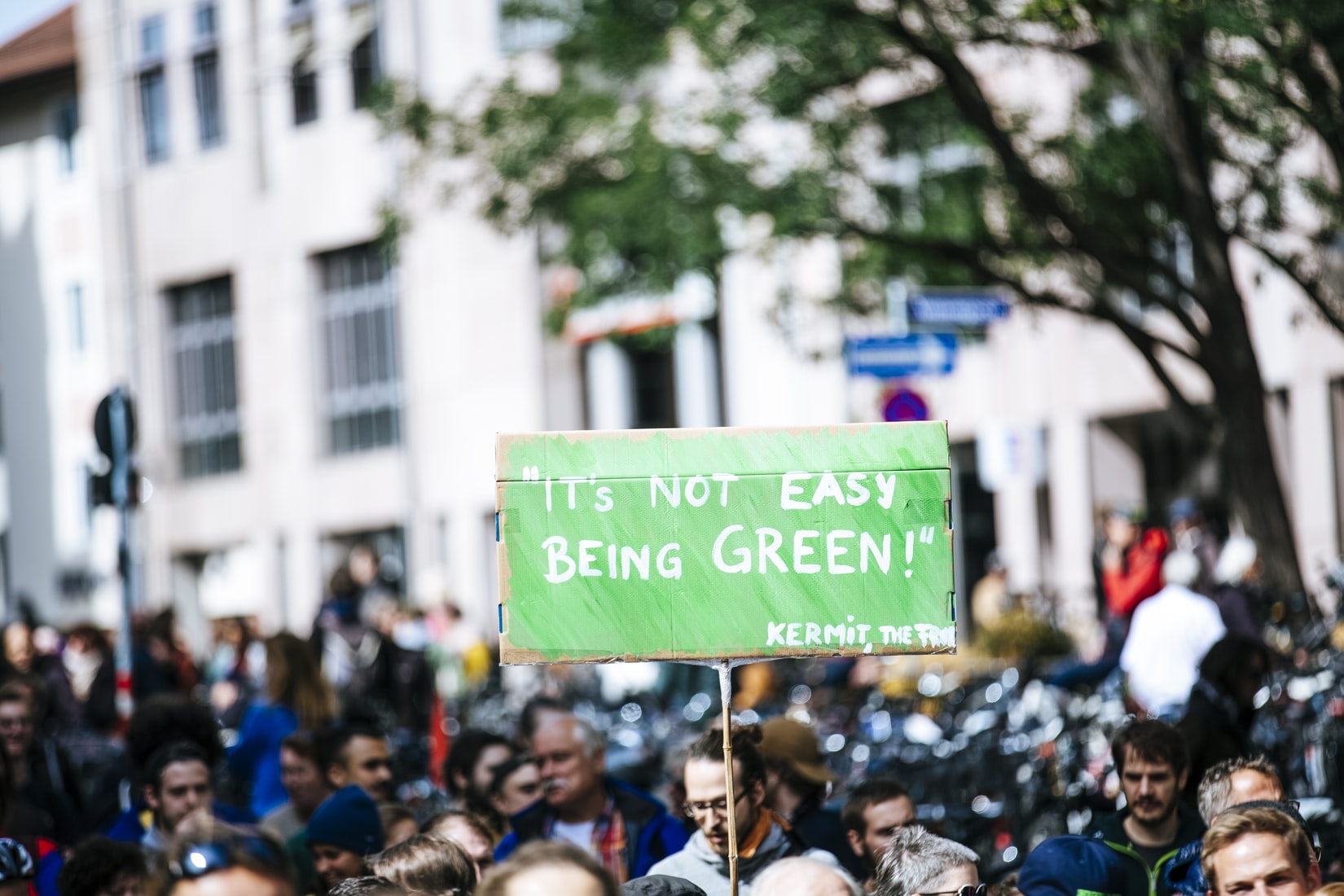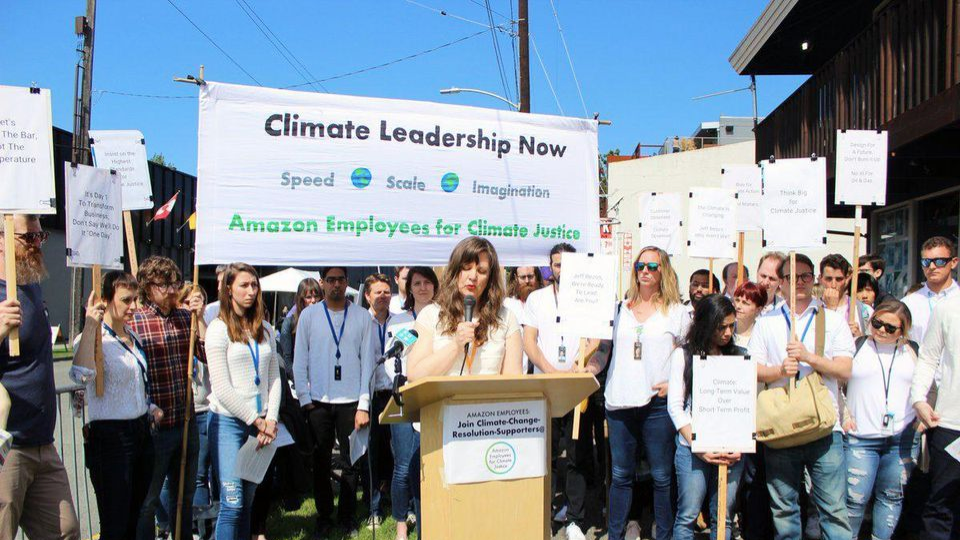By Laura Krumm
◦ 3 min read ◦
It is not news anymore that a change of consumer behavior is needed in order to have a chance at mitigating climate change. Almost every consumer action today can be quantified in terms of environmental impact. We know that we should opt for the tofu sticks instead of the steak at our neighbor’s barbeque, and we know that we should avoid the all-inclusive vacation to the Caribbean and take a cozy camping trip at Denmark’s beaches instead. What we don’t know is what those behavior changes mean for consumers. What are the consequences for our individual quality of life and well-being?
Self-sacrificing for the planet
The expectation does not seem to be very satisfying. Most of us have heard the word “sacrifice” in the context of environmentally friendly behavior before. The message we receive from climate activists, journalists and researchers is very clear:
We need to change our behavior today to avoid the catastrophic consequences of climate change tomorrow. We need to change our behavior for our children, the animals, other people in other countries, or our own future lives – even if we don’t want to.
We are expected to change our behavior for the greater good, while our own desires have to wait in line [1, 2].
This sacrifice narrative cannot only be found in climate change communication but also in consumers’ minds: When investigating what was hindering consumers to act environmentally friendly when they generally value the environment, the expectation of sacrifice and lowered quality of life was found to be one important factor [3]. Consumers seem to equate environmentally friendly behavior with a loss in quality of life and comfort. This anticipation, among others, prevents them from changing their behaviors and joining in the efforts of mitigating climate change.
Why is this important?
While altruistic motivation – driving us to self-sacrifice for the greater good – is positively related to environmental behavior [4], it can only get us so far. Another main driver of our actions is egoistic motivation. And as it seems, behaving more environmentally friendly is not perceived as a particularly egoistic action. While there sure are people with very strong altruistic motivation who enjoy behaving in a morally right way, many people are egoistic some or most of the time.
If the perspective of an environmentally friendly life is a bleak one, environmental engagement will be limited.
This is not only relevant for individual consumer behavior and environmental engagement, but also for policy and activism. When an environmentally friendly life seems bleak and uncomfortable to many people, it will be a difficult task to get them on board. Why would I support or vote for somebody who wants my life to become worse right now as a tradeoff for a potentially less catastrophic future?
Aside from elections, citizens who equate environmentally friendly behavior with sacrifice and lower well-being may also have lower acceptance of necessary policy interventions aimed at mitigating climate change. Consequently, the necessary change towards more environmentally friendly consumption will be hard to realize without considering its effects on well-being.
Does it have to be sacrifice?
Is it even true that environmentally friendly consumption can be equated with sacrifice, discomfort and a bleak existence?
Contrary to what the public opinion seems to believe, the relationship between well-being and environmentally friendly (or unfriendly) behavior is empirically not yet clear.
Some correlational studies even suggest the opposite: a positive relationship between environmentally friendly behavior and well-being [e.g., 5, 6]. These studies find that people who behave environmentally friendly are more satisfied with their lives. We cannot infer any causality of course – but these findings at least challenge the sacrifice assumption. This means that there may be a discrepancy between consumers’ expectations and the reality of behavior change. The sacrifice assumption might therefore not only be unhelpful in engaging consumers to behave differently, it may even be completely untrue.
What does that mean for us environmental researchers? We need to explore why consumers expect negative consequences of environmental behavior change and how to change that. We need to understand what these negative expectations are exactly. We need to take consumer well-being seriously and keep it in mind when designing behavior change policies and initiatives. And we need to rethink how we communicate about environmental behavior change and climate change mitigation.
References
[1] Kaplan, S., 2000 – Human Nature and Environmentally Responsible Behavior, in: Journal of Social Issues, 56 (3), 491-508.
[2] Prinzing, M., 2020 – Going green is good for you: Why we need to change the way we think about pro-environmental behaviour, in: Ethics, Policy & Environment, 1-18.
[3] Lorenzoni I., Nicholson-Cole, S. and Whitmarsh, L., 2007 – Barriers perceived to engaging with climate change among the UK public and their policy implications, in: Global Environmental Change, 17, 445-459.
[4] De Groot, J.I.M. and Steg, L., 2008 – Value orientations to explain beliefs related to environmental significant behavior, in: Environment and Behavior, 40 (3), 330-354.
[5] Binder, M. and Blankenberg, A., 2017 – Green lifestyles and subjective well-being: More about self-image than actual behavior?, in: Journal of Economic Behavior & Organization, 137, 304-323.
[6] Brown, K. W. and Kasser, T., 2005 – Are psychological and ecological well-being compatible? The role of values, mindfulness, and lifestyle, in: Social Indicators Research, 74, 349-368.
About the Author
Laura Krumm is a PhD fellow at the Department of Management, Society and Communication and a member of the Consumer & Behavioural Insights Group. In her PhD project she explores the intersection of environmental consumer behavior and well-being.
Photo by Markus Spiske on Unsplash


